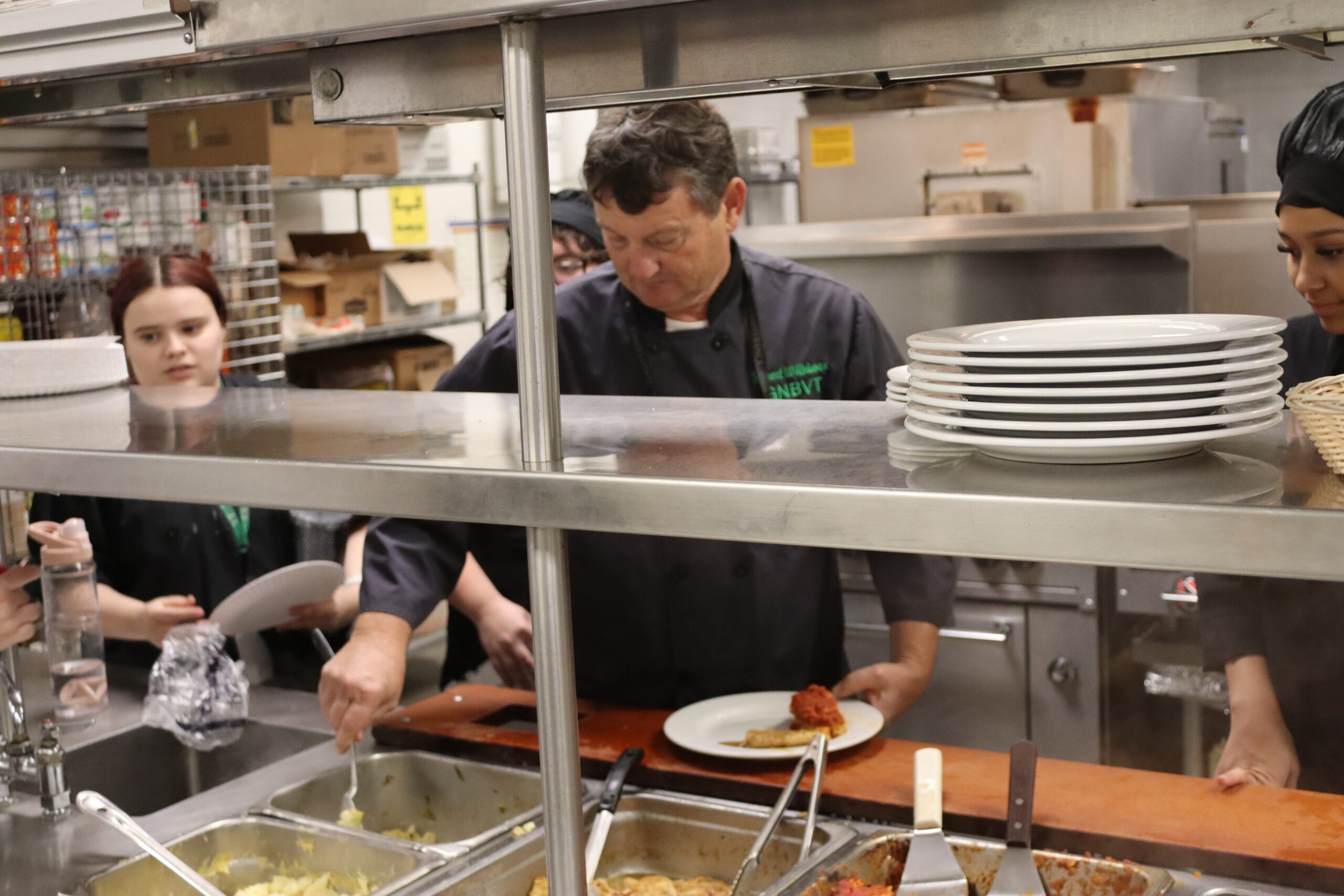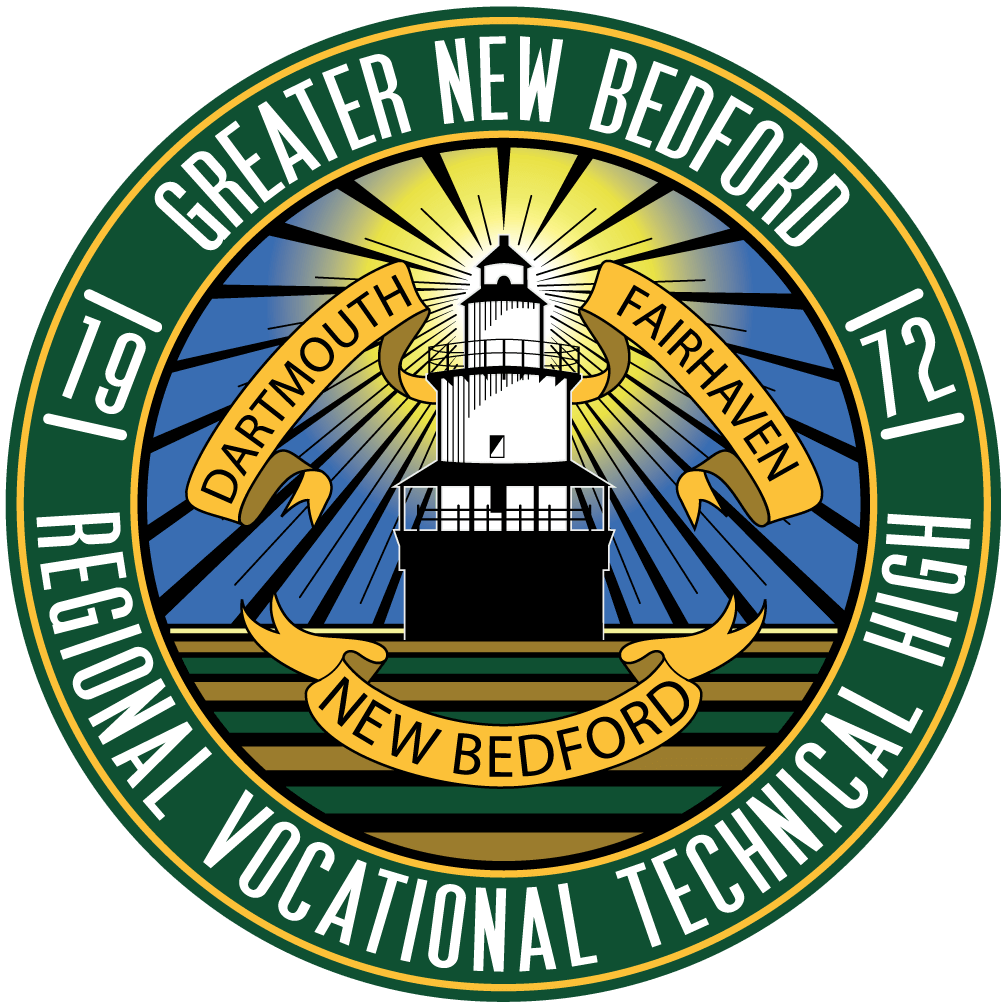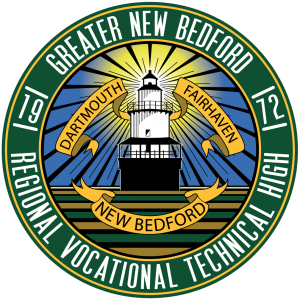2024 – 2025
Culinary
Joanne Romanelli, Academy B Administrator – Ext. 267
Course & Program of Studies
Statement of Purpose
Our Culinary Arts program is dedicated to providing students with a comprehensive education and hands-on training to prepare them for successful careers in the culinary arts and hospitality industry.
Key Program Features:
- Nationally Certified: Our program is certified by the American Culinary Federation Education Foundation’s Secondary Certification Committee.
- Industry Certifications: Students have the opportunity to earn ServSafe Food Safety Manager certification and CPR/First Aid certifications.
- Real-World Experience: Students gain practical experience in a live commercial kitchen setting.
- Diverse Culinary Skills: Our curriculum covers a wide range of culinary techniques, including cooking, baking, and pastry arts.
- Front-of-House Training: Students learn essential front-of-house skills, such as customer service, table service, and point-of-sale systems.
- Cooperative Education Opportunities: Students can participate in cooperative education programs to gain valuable industry experience.
Career Pathways:
Upon graduation, our students are well-prepared to pursue a variety of career paths, including:
- Culinary Arts: Chef, Cook, Baker, Pastry Chef
- Food Service Management: Restaurant Manager, Catering Manager, Food Service Director
- Hospitality Management: Hotel Manager, Event Planner, Food and Beverage Director
By combining rigorous academic instruction with hands-on training, our Culinary Arts program empowers students to achieve their culinary goals and make a significant impact in the industry.
Exploratory Program
The Culinary Arts Exploratory Program offers a taste of the exciting world of culinary arts. Students will learn essential kitchen skills, including:
- Food Safety and Sanitation: Understanding and practicing proper food safety and sanitation procedures.
- Basic Cooking Techniques: Mastering fundamental cooking techniques like sautéing, grilling, and baking.
- Knife Skills: Developing knife skills for precise and efficient food preparation.
- Recipe Preparation: Following recipes and adjusting measurements to create delicious dishes.
Through hands-on experience and guided instruction, students will gain a solid foundation in culinary arts and discover their passion for food.
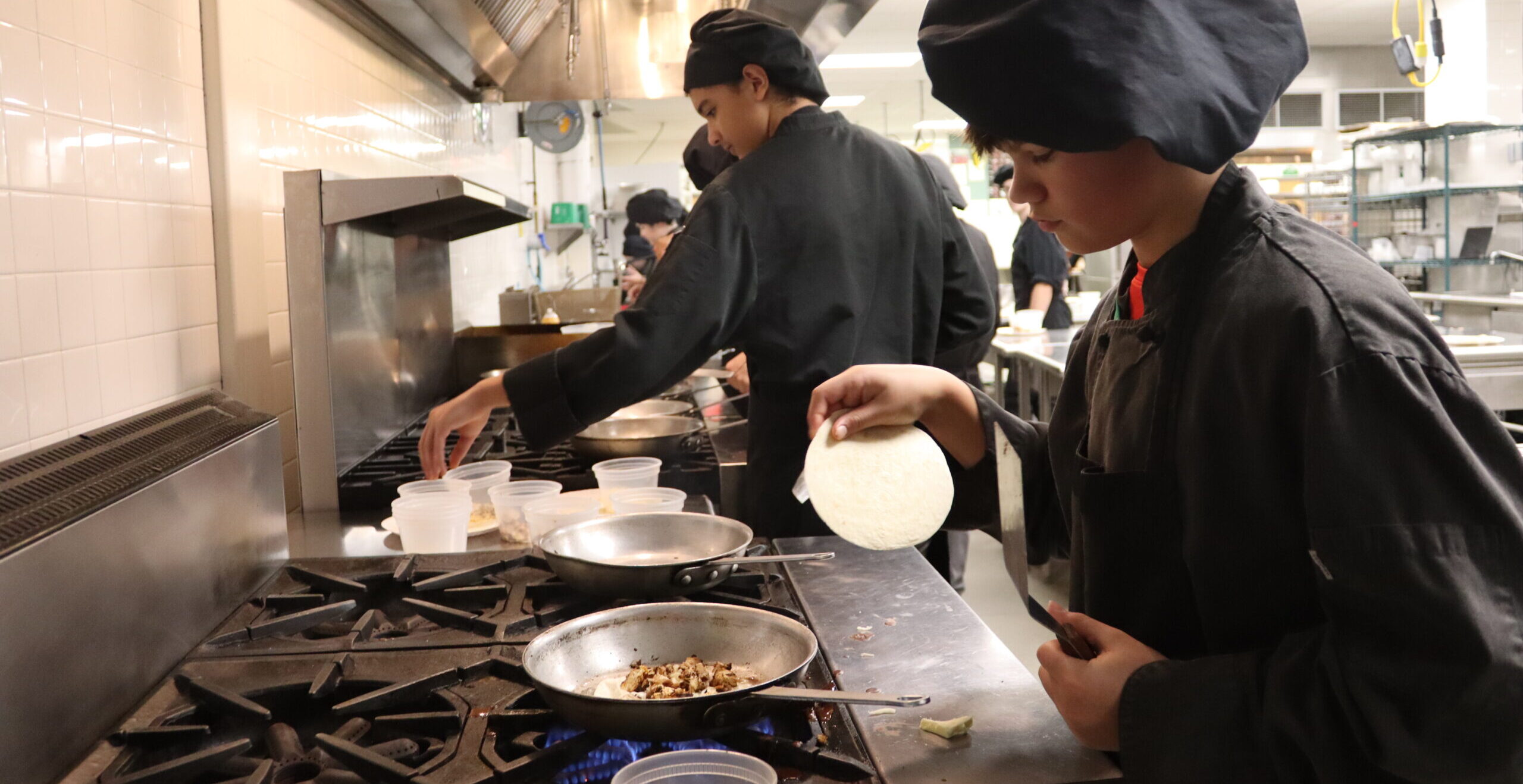
Freshman Program
Freshman-year Culinary Arts students will develop a strong foundation in culinary fundamentals and industry best practices. Key areas of focus include:
- Food Safety and Sanitation: Understanding and implementing food safety regulations to prevent foodborne illness.
- Kitchen Safety: Learning safe kitchen practices, including proper knife handling and equipment usage.
- Culinary Techniques: Mastering basic cooking techniques like sautéing, grilling, baking, and broiling.
- Baking Skills: Exploring the art of baking, including bread, pastries, and desserts.
- Restaurant Operations: Gaining insights into front-of-house operations, such as table service, point-of-sale systems, and customer service.
- Workplace Readiness: Developing essential workplace skills, including teamwork, time management, and professionalism.
By the end of the year, students will have a solid understanding of culinary principles and be prepared to advance to more complex culinary techniques in their sophomore year.
Sophomore Program
The Sophomore Culinary Arts course builds upon the foundational skills introduced in the freshman year. Students will develop advanced culinary skills and experience through a combination of classroom instruction, hands-on training, and real-world applications. Key areas of focus include:
- Advanced Cooking Techniques: Mastering advanced cooking techniques, such as braising, roasting, and grilling.
- Menu Planning and Development: Creating diverse and creative menus.
- Food Cost Control: Understanding and managing food costs.
- Inventory Management: Efficiently managing inventory levels.
- Culinary Math: Applying mathematical concepts to recipe scaling, portion control, and cost analysis.
- Catering and Event Planning: Planning and executing catering events.
- Restaurant Operations: Gaining experience in restaurant operations, including front-of-house and back-of-house duties.
- Computer Applications: Utilizing Microsoft Office Suite for recipe development, inventory management, and other culinary tasks.
Through a combination of classroom instruction and hands-on experience, students will develop the skills and knowledge needed to excel in the culinary industry.
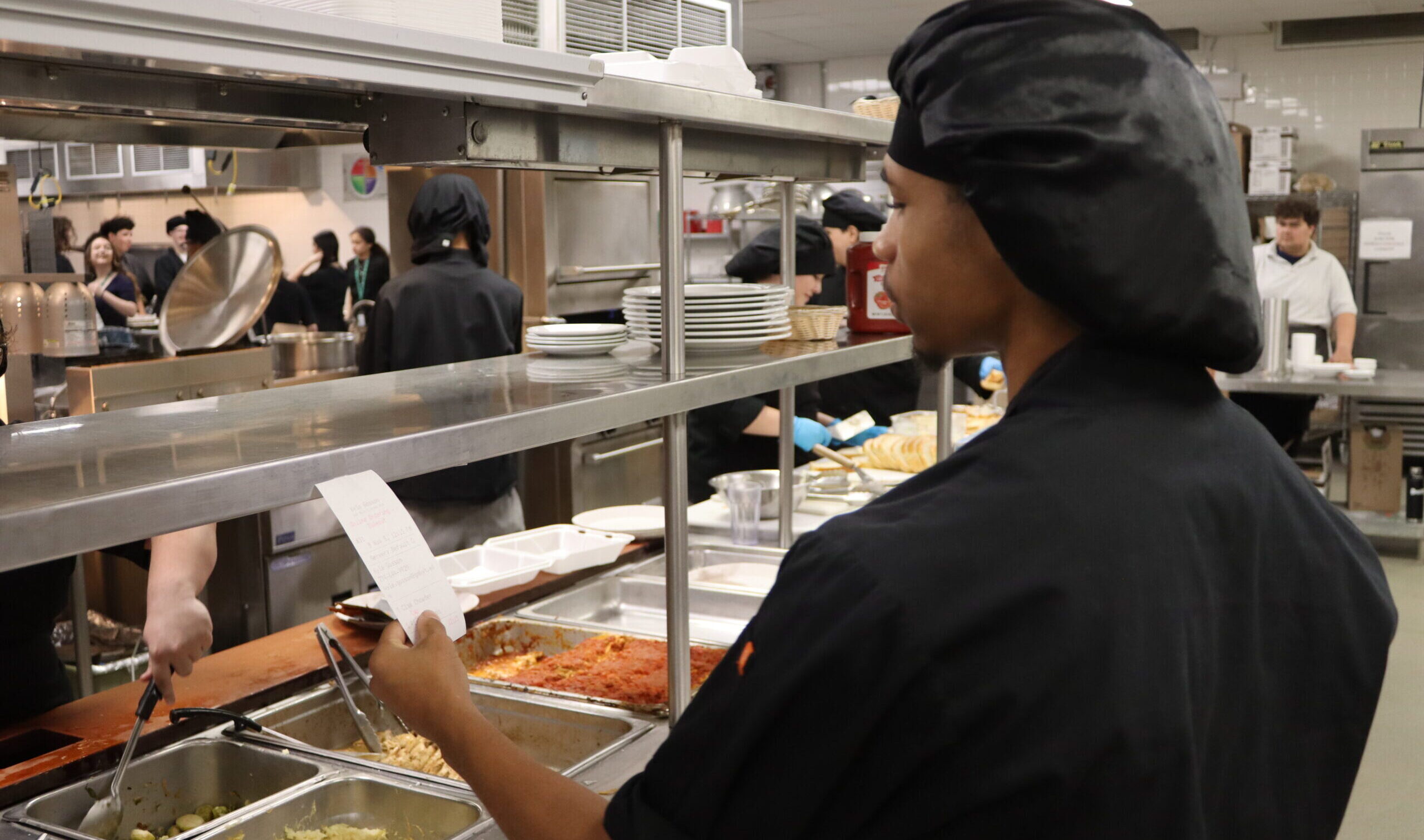
Sophomore Related Class 1
Culinary Arts Related Theory
This course delves into the scientific foundations of culinary arts, exploring the chemistry and physics behind food preparation. Students will gain a deeper understanding of:
- Food Science: The chemical and physical properties of ingredients, their interactions, and their impact on flavor, texture, and color.
- Nutrition: The nutritional value of foods, dietary guidelines, and the role of food in promoting health and wellness.
- Culinary Techniques: The science behind cooking methods, including heat transfer, enzymatic reactions, and Maillard browning.
- Flavor Development: The factors that influence flavor, such as herbs, spices, and cooking techniques.
- Food Safety and Sanitation: Best practices for food safety, including proper hygiene, temperature control, and sanitation procedures.
- Menu Planning: The principles of menu planning, considering factors like cost, seasonality, and dietary restrictions.
- Culinary History and Culture: The cultural and historical significance of food and its impact on different cuisines.
By combining theoretical knowledge with practical experience, students will develop a well-rounded understanding of culinary.
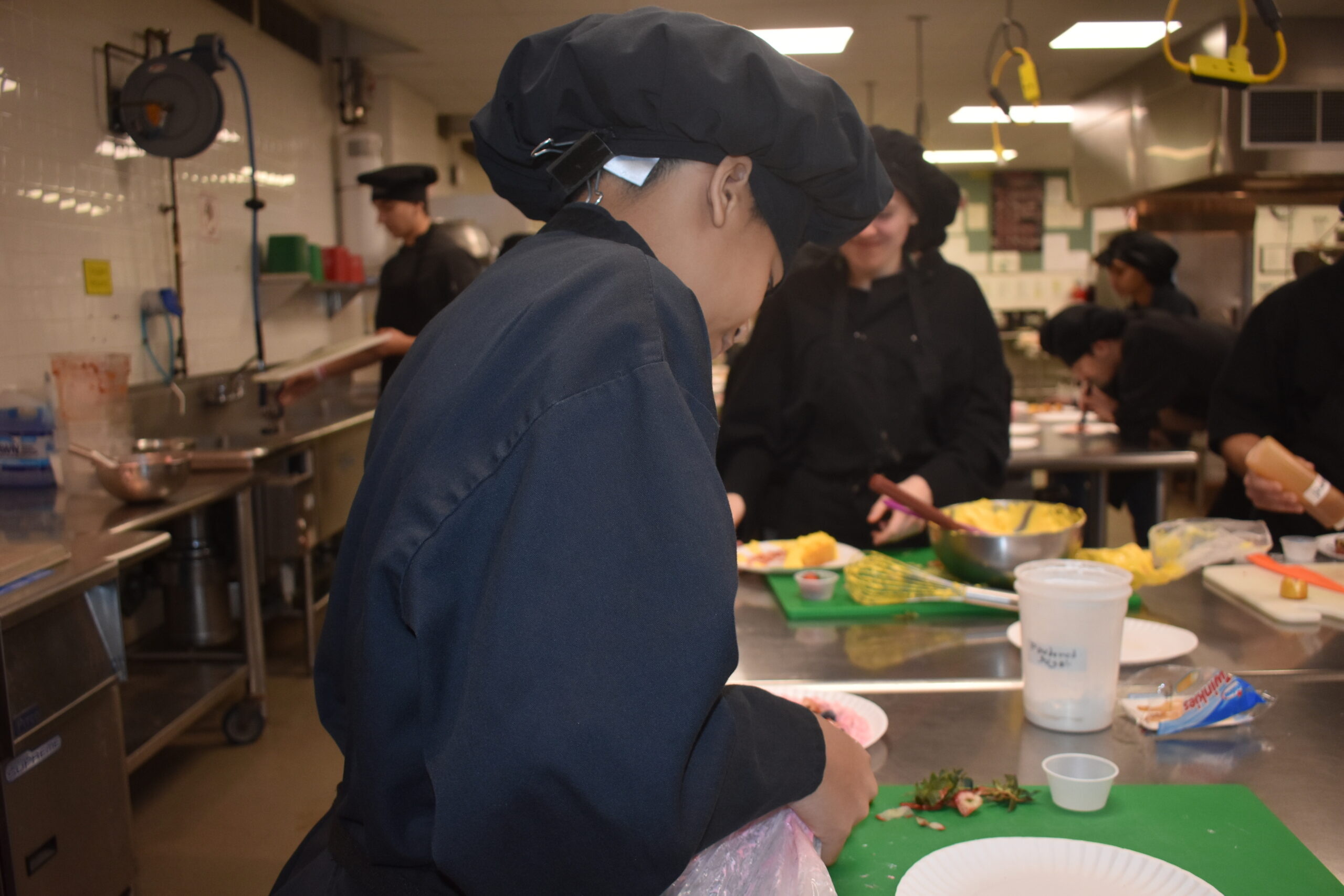
Sophomore Related Class 2
Principles of Business
“Principles of Business” is a sophomore level course, which centers around principles, policies and procedures related to being an entrepreneur. Two tracks run simultaneously during this course. The first, focuses on the use of computers, understanding application, hardware, software and responsible use of technology. The course also concentrates on intermediate word processing and spreadsheet applications using Microsoft Word and Excel. Students will process business correspondence, mail merges, memos, tables, and newsletters, as well as basic Microsoft Excel functions. Through the text, “The Teen Entrepreneur”, students study the principles of entrepreneurship, small business, and start-up procedures. At the same time they choose a business of their own and prepare all necessary documents to obtain funding, research the market, gain customers, and operate the business. Students will be challenged to use creativity, entrepreneurial writing, and decision-making skills that will yield a professional business plan and marketing materials. The business plan can then be used as a guide to help operate and manage the chosen business.
This sophomore-level course provides students with a solid foundation in business principles and entrepreneurship. The course is designed to develop essential skills for future business leaders, including:
Core Concepts:
- Entrepreneurship: Understanding the principles of entrepreneurship, including identifying opportunities, developing business plans, and managing risks.
- Business Operations: Learning about the fundamentals of business operations, such as marketing, finance, and human resources.
- Technology Skills: Mastering computer skills, including word processing, spreadsheets, and presentation software.
- Communication Skills: Developing effective communication skills, both written and verbal.
- Critical Thinking and Problem-Solving: Applying critical thinking to solve business challenges.
Practical Applications:
- Business Plan Development: Creating comprehensive business plans that outline business goals, strategies, and financial projections.
- Market Research: Conducting market research to identify target markets and analyze industry trends.
- Financial Management: Understanding financial statements, budgeting, and cost control.
- Marketing and Sales: Developing marketing strategies and sales techniques to attract customers.
Junior & Senior Program
Our Culinary Arts program offers a comprehensive, hands-on education that prepares students for successful careers in the culinary industry. Through a rotational approach, students gain expertise in various areas of food service, including:
Rotation I: Baking and Pastry Arts
- Foundational Skills: Students learn fundamental baking techniques, such as mixing, creaming, and kneading.
- Bread Baking: Master the art of bread making, from sourdough to artisan loaves.
- Pastry Arts: Explore the world of pastries, including pies, tarts, and croissants.
- Cake Decorating: Develop cake decorating skills, from simple to elaborate designs.
Rotation II: Culinary Production
- Culinary Techniques: Practice a wide range of cooking techniques, including sautéing, grilling, roasting, and braising.
- Menu Planning and Development: Learn to create balanced and appealing menus.
- Food Safety and Sanitation: Adhere to strict food safety and sanitation guidelines.
- Kitchen Operations: Gain experience in kitchen operations, including inventory management, food cost control, and production scheduling.
Rotation III: Front-of-House Operations
- Table Service: Develop excellent table service skills, including taking orders, serving food, and managing guest expectations.
- Restaurant Management: Learn the principles of restaurant management, including staffing, scheduling, and customer service.
- Point-of-Sale Systems: Utilize point-of-sale systems to process orders and manage sales.
- Banquet Operations: Gain experience in planning and executing banquets and special events.
By the end of the program, students will be well-prepared to enter the workforce or pursue further education in culinary arts or hospitality management. Our program emphasizes hands-on training, industry-standard practices, and a strong focus on food safety and sanitation.
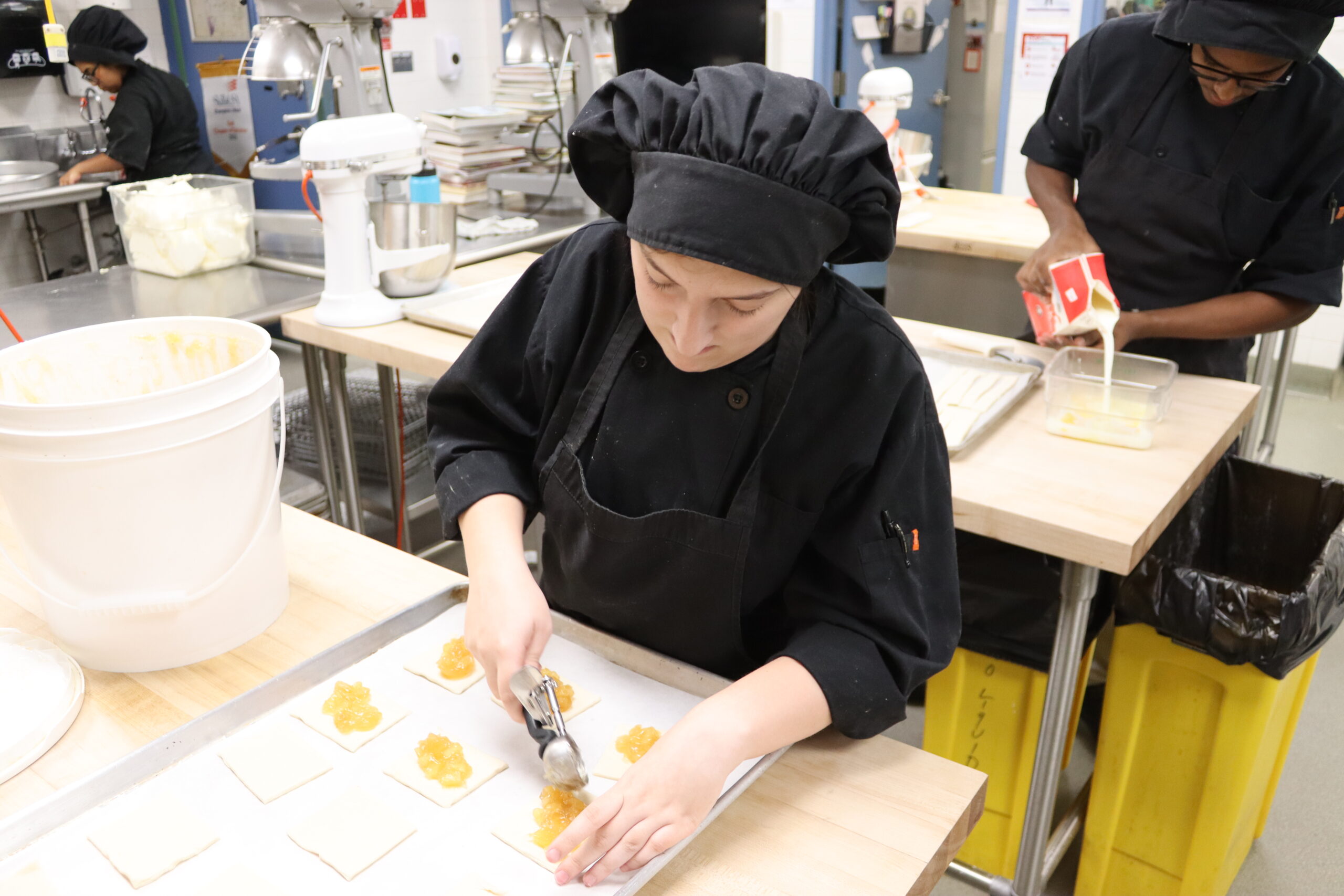
Junior Related 1
ServSafe / Math
In the ServSafe course, students will be provided with accurate and up-to-date information for all levels of employees and also on all aspects of safe food handling and preparation.
Students will also learn how to examine the entire food service industry with respect to all phases within the operation. This will enable them to apply the knowledge acquired from this course and incorporate it into any type of foodservice operation. This will also prepare them for the ServSafe Foodservice Manager certification and an Allergen Awareness certificate.
In the Math related class, students will learn to apply basic mathematical concepts used in the food service industry. Students will develop practical knowledge of math skills and apply them to measurement conversions, word problems, food costing, unit cost, and extended costing. Students will also review their math skills by working with fractions, decimals, percentages and ratios while applying them to food service math. Topics such as wages, overtime, and payroll will be introduced.
The ServSafe course provides comprehensive training in food safety and sanitation. Students will learn about:
- Foodborne Illness Prevention: Identifying foodborne illnesses, their causes, and prevention methods.
- Personal Hygiene: Maintaining personal hygiene to prevent food contamination.
- Time and Temperature Control: Understanding the importance of time and temperature control to minimize bacterial growth.
- Cleaning and Sanitizing: Proper cleaning and sanitizing procedures for food contact surfaces.
- Purchasing and Receiving: Safe food purchasing and receiving practices.
- Storage: Storing food safely to prevent contamination and spoilage.
- Preparation: Safe food preparation techniques.
- Service: Safe food service practices.
By completing this course, students will be well-prepared to take the ServSafe Food Safety Manager Certification exam.
Math for Culinary Arts
The Math for Culinary Arts course focuses on practical math skills essential for the foodservice industry. Students will learn to:
- Convert Measurements: Convert between different units of measurement (e.g., cups, ounces, grams).
- Calculate Food Costs: Determine food costs and pricing.
- Manage Inventory: Manage inventory levels and calculate usage rates.
- Understand Financial Statements: Interpret basic financial statements, such as income statements and balance sheets.
- Apply Math to Recipes: Scale recipes up or down and adjust ingredient quantities.
By mastering these math skills, students will be able to make informed decisions in the kitchen and manage food costs effectively.
Junior Related 2
Food Service Theory
The course is designed to emphasize to the students, all of the fundamentals of cooking, baking and of the dining room. It is within this year that the students will learn as much as possible in the classroom in regards to these three major areas of our shop. It is also a goal to introduce them to some of the more advanced methods and techniques that may be used in the industry.
This course provides a comprehensive foundation in culinary arts, covering fundamental cooking, baking, and dining room service skills. Students will:
- Master Basic Culinary Techniques: Develop proficiency in essential cooking techniques such as sautéing, grilling, roasting, and baking.
- Explore Baking and Pastry Arts: Learn to bake a variety of breads, pastries, and desserts.
- Understand Food Science: Gain knowledge of the scientific principles behind cooking, including food chemistry and food safety.
- Practice Dining Room Service: Develop front-of-house skills, including table setting, food service, and customer service.
- Learn Menu Planning and Cost Control: Understand the principles of menu planning and cost control.
- Practice Sanitation and Safety: Adhere to strict food safety and sanitation guidelines.
By the end of the course, students will be well-prepared to advance to more complex culinary techniques and real-world applications in their junior and senior years.
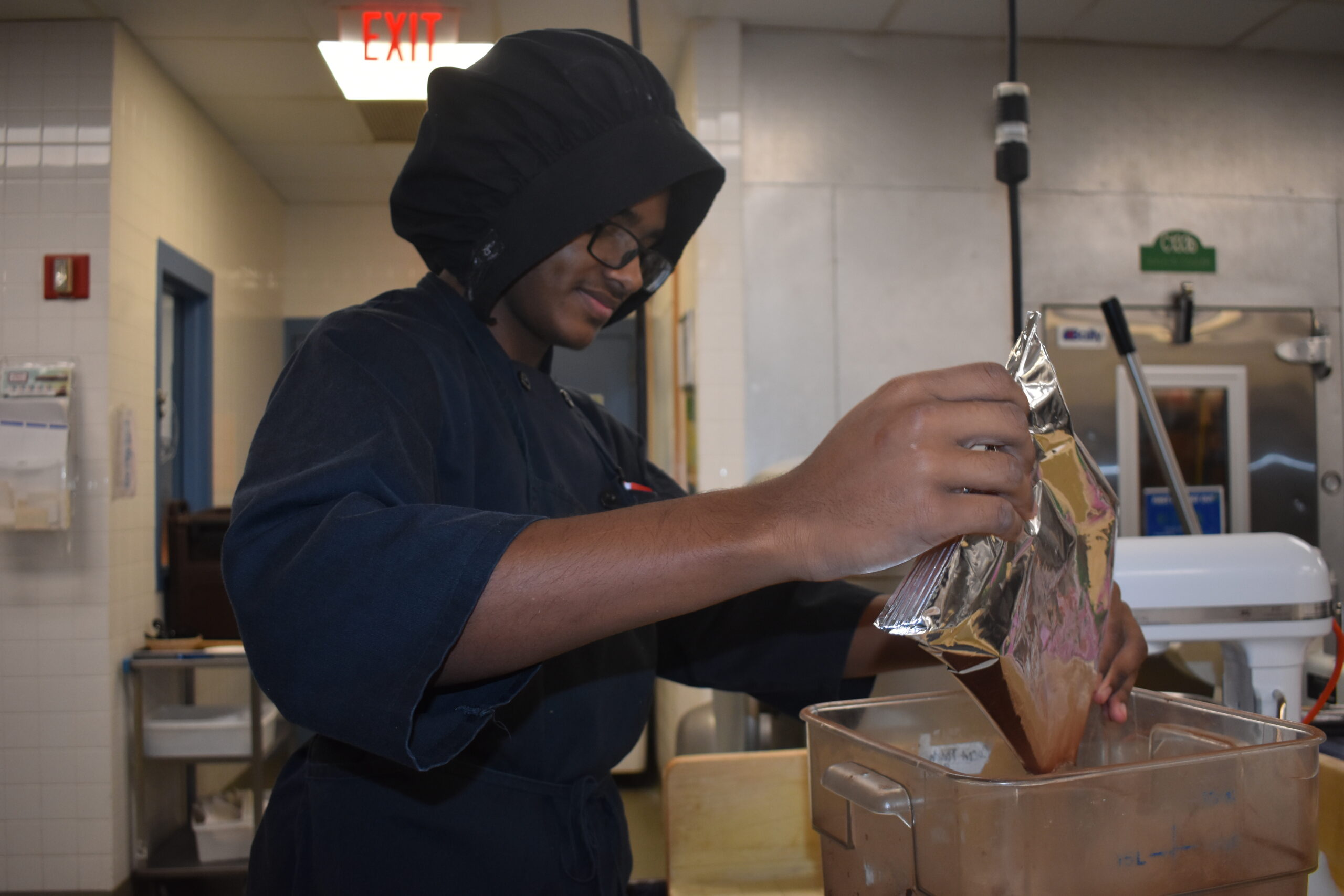
Senior Related 1
Entrepreneurship
This course is designed to give students a chance to learn how to plan a business and experience the process of decision making that will enable them to become an entrepreneur in the future. The process for filling out job applications along with job interview techniques are also a major component of the course. The students will also participate in mock job interviews. A basic knowledge of the necessary skills and information needed to set up a business will be presented.
This course is designed to equip students with the knowledge and skills necessary for entrepreneurial success. Students will learn about:
- Business Planning: Developing comprehensive business plans, including market research, financial projections, and marketing strategies.
- Entrepreneurial Mindset: Cultivating a growth mindset, taking initiative, and embracing challenges.
- Job Search Skills: Crafting effective resumes and cover letters, preparing for job interviews, and practicing interview techniques.
- Financial Literacy: Understanding basic financial concepts, such as budgeting, saving, and investing.
- Legal and Regulatory Considerations: Navigating legal and regulatory requirements for starting and running a business.
By the end of the course, students will be better prepared to pursue their entrepreneurial goals and make informed decisions about their future careers.
Senior Related 2
Hospitality – Elective
Students will be provided with the information necessary to explore the many options provided by the hospitality industry. The many career choices that are available to them and the extensive possibilities will be discussed and researched.
Students will also learn how the entire food service industry works hand in hand with the hospitality industry. With this information they will discover the many job/career opportunities that the hospitality and tourism industry provides. This will enable them to apply the knowledge acquired from this course and incorporate it directly to their career goals.
This course will provide students with a comprehensive overview of the hospitality industry, exploring the diverse career opportunities available. Students will learn about:
- Hospitality Careers: Identifying various career paths within the hospitality industry, including hotel management, restaurant management, event planning, and tourism.
- Industry Trends: Staying up-to-date with current trends and innovations in the hospitality industry.
- Customer Service: Developing strong customer service skills, including effective communication and problem-solving.
- Industry Standards: Understanding industry standards and regulations, such as food safety, sanitation, and workplace safety.
- The Role of Technology: Exploring the role of technology in the hospitality industry, including point-of-sale systems, property management systems, and online booking platforms.
By the end of this course, students will have a clear understanding of the hospitality industry and be well-prepared to pursue a career in this dynamic field.
Certifications
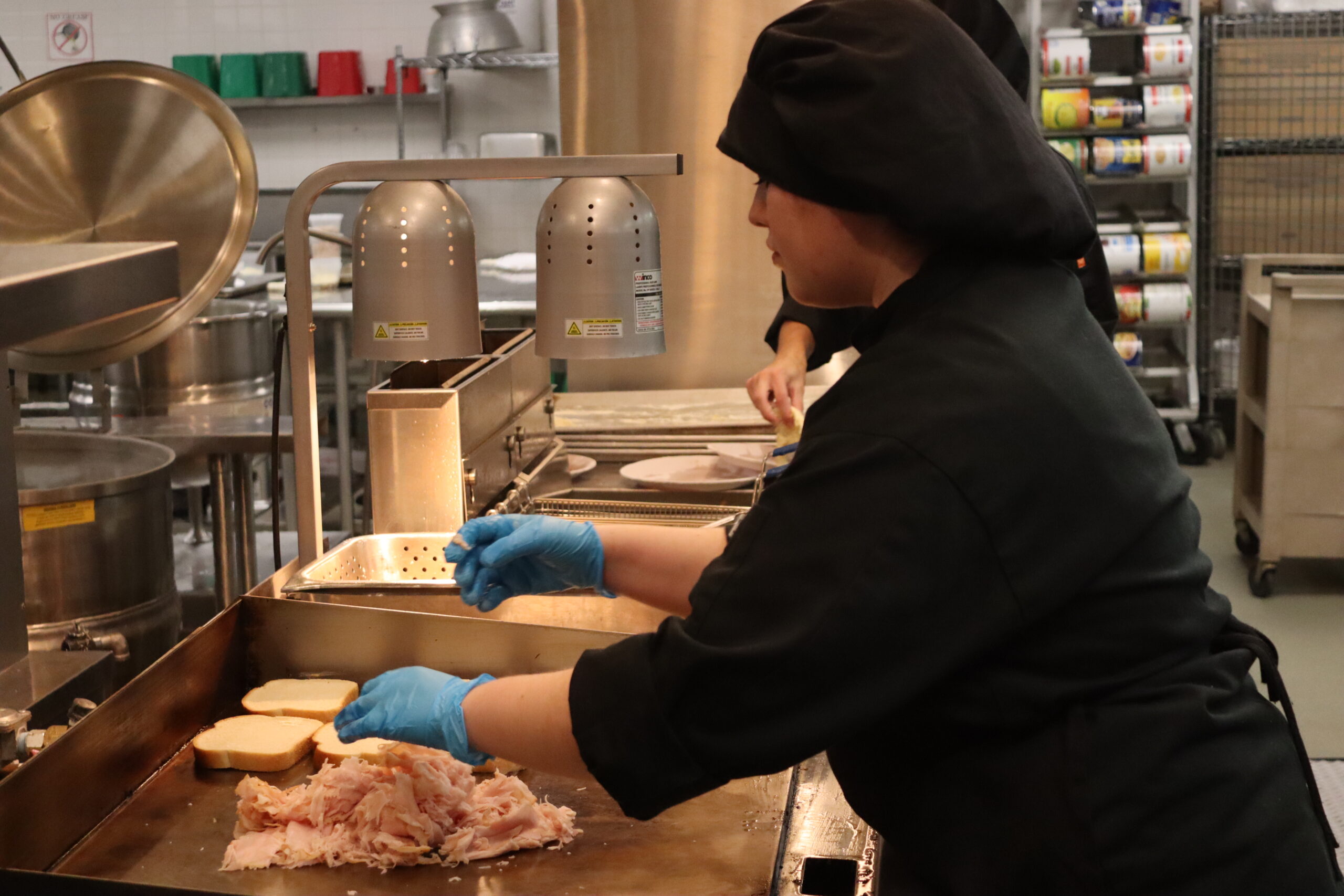
- ServSafe
- First Aid / CPR
- OSHA 10
- Allergy Awareness
Career Opportunities
- Line Cooks
- Stewards
- Chefs
- Executive Chef
- Banquet Servers
- Front Desk Clerks
- Event Manager
- Cruise Ship Personnel
- Restaurant Servers
- Bussers
- Restaurant-Equipment Sales
- Food Product Sales
- Food Product Test Kitchen
- Franchise Restaurant/ Hotel Owner
- Bed and Breakfast Owner/Manager
- Hotel Director of Sales
- Bartender
- Butcher
- Careers in Public Health
- Caterer
- Food Inspector
- Food Science Technologist
- Host/Hostess
- Pastry Chefs
- Bakers
- Restaurant Manager
- Food and Beverage
Post-Secondary Education
- Early Enrollment at Johnson & Wales
- Degree programs in Culinary Arts and Hospitality Management
